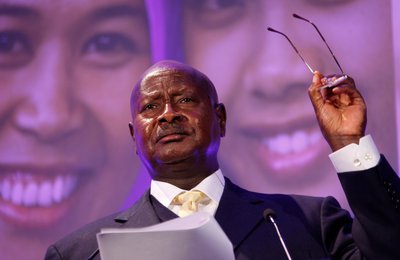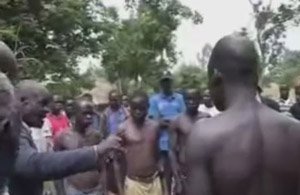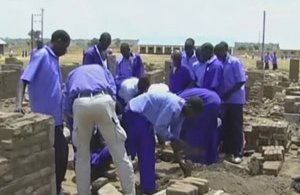There are many contradictions in Uganda’s political landscape. But, one is especially intriguing. Former Lord’s Resistance Army (LRA) fighters including senior commanders and collaborators who only a few years ago vowed to kill Museveni and overthrow his government, now speak very favourably of him. Some have even joined his ruling NRM party.
To give one example, the government-owned New Vision on 3 August reported that Brigadier Sam Kolo, former LRA chief spokesman, was elected unopposed as NRM Vice-Chairman for the Veterans League in Nwoya District in northern Uganda. The article further reported that Kolo said he was “looking forward to becoming the Member of Parliament (MP) for Nwoya in 2016.” Kolo was granted amnesty in 2005 following his fall-out with Joseph Kony and was “rescued” by the Uganda Peoples Defence Forces (UPDF).
Another former LRA fighter, Lt. Jackson Acama, was also elected by the NRM as Secretary for Publicity for Persons with Disabilities ('Former rebel Kolo wins NRM seat in Nwoya' New Vision Tuesday 3 August 2010). In June 2010, David Nyekorach Matsanga, former LRA head of delegation to the Juba peace talks and another long-time LRA spokesman and harsh critic of Museveni, was also granted amnesty by the government of Uganda. Matsanga later praised Museveni and the government and denied the allegations that it committed atrocities in northern Uganda, which he blamed on the opposition parties (See Matsanga should not have been give amnesty-New Vision Thursday 10, June 2010 for more).
The LRA, a rebel group that has been fighting the government of Yoweri Museveni since it came to power in 1986 (and still continues to fight today), has had many of its former fighters reintegrated back into the communities from which they were abducted or committed atrocities. Some of these fighters were either rescued during military operations or returned courtesy of Uganda’s Amnesty Law of 2000. This amnesty law was initially opposed by Museveni and his party but made it through Parliament because of the overwhelming support it enjoyed around the country. Over 15,000 LRA fighters have since returned under the amnesty law. The LRA leader Joseph Kony and an estimated 2,000 active forces however continue to commit atrocities in DRC, southern Sudan and parts of the Central African Republic (See 'LRA: Uganda’s worst export of the century', Daily Monitor 3, August 2010).
In light of these events, we must ask some questions. For instance, are we seeing the beginning of the long journey towards reintegration and national reconciliation in Uganda? Or, is this a political gamesmanship or patronage for a blanket amnesty by former fighters who fear persecution if deemed in opposition? Is the LRA interpreting ‘renouncing rebellion’ under the current amnesty law to mean its support for Museveni? Or, is the new bond between Museveni NRM and former LRA a panacea to sustainable peacebuilding in Uganda? Can this image of former foes reconciling be translated into a broader process of national reconciliation?
Meanwhile, as these questions stir, efforts by victim groups, human rights and civil society actors advocating implementation of comprehensive transitional justice mechanisms including amending the amnesty law to remove blanket amnesty and to require perpetrators to explain their roles in the conflict in exchange for amnesty has not yielded much success. In other words, there continues to be no space for victims and beneficiaries of amnesty to reconcile their histories of the conflict. What are the perceived roles played by the LRA and government of Uganda. What might account for the triumph of former fighters in Uganda’s politics? Is the government pandering to individuals’ fears or are parties making an attempt to reconcile? Can someone please explain these paradoxes?
Stephen Oola






